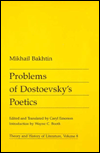Points of Contact and Criticism Between Wittgenstein and Freud
By Steve Hoenisch
Copyright 1996-2015 Steve Hoenisch | www.Criticism.Com
1 Dreams
Dreams. Freud, Wittgenstein says, held that “all dreams are wish fulfillments.” Wittgenstein, on the other hand, holds that “it is probable … there is no single line of explanation for all of them” (“Conversations on Freud,” p. 47).
Interpretation as Meaning. For Freud, the meaning of a dream could often be revealed through the interpretation of it. For Wittgenstein, “any interpretation still hangs in the air along with what it interprets, and cannot give it any support. Interpretations by themselves do not determine meaning” ([Philosophical Investigations], No. 198).
Reductionism. Freud was misguided, Wittgenstein says, in that he “wanted to find some one explanation which would show what dreaming is. He wanted to find the essence of dreaming” (L&C, p. 48).
2 Science
Science. Freud considered his approach to be scientific. Wittgenstein considered both his and Freud’s approach to be philosophical, not scientific.
Weltanschauung. Freud’s agenda, Bouveresse says, was “to eliminate metaphysics in favor of the ‘scientific’ conception of the world.” Wittgenstein thought such agendas naive.
Theory. Freud attempted to construct a theory that explained the range of psychological behavior. Wittgenstein thought misguided the construction of a single philosophical theory, and he may have thought that psychoanalysis lacked the power to explain the range of psychic behavior.
3 Traits and Teachings
Courage. Wittgenstein saw courage, a trait he valued highly, in Freud’s originality and ingeniousness.
Cleverness. Wittgenstein often remarked that Freud was clever, a view that contains, as Bouveresse points out, an element of implicit criticism – and also of self-criticism, for Wittgenstein often feared that he, too, was only clever, rather than wise, the trait for which he strived. Wittgenstein says: “Wisdom is something I never would expect from Freud. Cleverness, certainly; but not wisdom” (Lectures and Conversations, p. 41).
Danger to the Public. Bouveresse notes that Wittgenstein compared the “incalculable harm” Freud had done to the harm he himself had probably done to philosophy – both of their enterprises allowed anyone to claim they could treat philosophical or psychological maladies. Wittgenstein once remarked that his and Freud’s “teachings, like wine, had made people drunk. They did not know how to use the teaching soberly.”
Creation of a School. Freud, Bouveresse says, thought it indispensable to create a school to spread his ideas, whereas Wittgenstein did not believe that philosophy had new truths to communicate and did not want to create a school.
4 Related
The Myth of Psychoanalysis: Wittgenstein Contra Freud My central thesis is that if, as Wittgenstein says, Freudian psychoanalysis is based in myth, its application to actual psychological problems does not, indeed cannot, resolve them. Instead, all it can do is clarify them or present them in a different light. Implicit in my argument is that this is how Wittgenstein thought of the results of psychoanalysis, much like he thought of the application of his philosophical technique to philosophical problems, especially those of metaphysics, ethics, and aesthetics. As such, Wittgenstein is also subverting a larger myth: that the insights gained in psychoanalysis lead to the scientific resolution of psychological problems. Read on …
Wittgenstein and Freud: Points of Contact and Criticism
A Wittgensteinian Approach to Discourse Analysis This essay seeks to take Wittgenstein’s influence on discourse analysis a step further by using his writings as the theoretical foundation for an approach to analyzing discourse that is distinct from speech act theory, [ ] [
] [ ] which stems from the analytic tradition in philosophy, and to suggest that a Wittgenstein-inspired approach may actually be closer in spirit and content to that of an unlikely candidate whose views, in contrast to the analytic school, harbor a distinctly Continental flavor which has come to influence critical theory: Mikhail Bakhtin. Read on …
] which stems from the analytic tradition in philosophy, and to suggest that a Wittgenstein-inspired approach may actually be closer in spirit and content to that of an unlikely candidate whose views, in contrast to the analytic school, harbor a distinctly Continental flavor which has come to influence critical theory: Mikhail Bakhtin. Read on …
A Scientific Analysis of Desire?